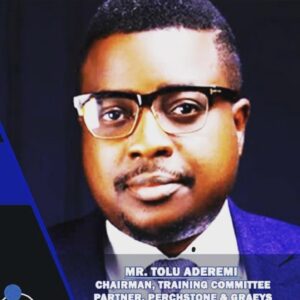
Weeks after the passing of the Petroleum Industry Bill (the Bill) by the National Assembly, discussions remain rampant on the provisions of this Bill and how suited it is in realizing the core objectives centered on fostering sustainable prosperity in the Host Communities, enhancing peaceful and harmonious co-existence between licensees or leases and Host Communities as well as supporting the development of the Host Communities in particular, and the country in general.
Speaking on the “Conversation with Oluwakayode” a Radio Programme on Lagos Talks 91.3fm on Saturday, July 17 2021, Mr. Tolu Aderemi, an Oil and Gas Expert and a Partner at Perchstone and Graeys LP, one of the leading commercial Law Firms in the country, shared his expert opinion on the harmonization process of the Bill, its expected outcome and the impact on the Host Community.
The journey to what we now have as the Bill could be traced back to the Oil and Gas Reform Committee (OGRC) constituted during the General Olusegun Obasanjo administration. However, in 2008 Late General Umaru Yar’dua took the bold step by introducing the Bill to the National Assembly. It is quite alarming that after 13 (Thirteen) years, 3 (Three) Presidents and 4 (Four) Assembly, this Bill remains a subject of tactical negotiation and strategizing as the Host Communities remain unsatisfied.
Commenting on whether the Bill can be rightly described as a game changer, Mr. Tolu Aderemi, stated that the Bill is an ambitious one that has attempted to compress 16 legislations into one document. He further stated that not only is this ambitious, but also has the tendencies to be counterproductive because a careful consideration of the Industry challenges and issues that have arisen from the several legislations have not been addressed.
Some of these legislations he referred to are the Petroleum Profit Tax Act (PPTA) on the issue of taxation and The Deep Offshore and Inland Basin Production Sharing Contract Act 2019 as amended on the Investment Tax Credit (ITC) which has been a subject of several arbitration cases.
On the question of how the Bill has been able to manage the different industry issues arising from the harmonized legislations, Mr. Tolu Aderemi stated that the Bill has not done bad at all because looking at where we are coming from and where we are now as a country, there has been a great improvement in the light of the provisions on Governance and the Host Communities.
He stated that part of the problems we have had as a country in this sector is the absence of regulatory clarity as on one hand, players in the industry do not know who the regulators are and on the other hand, they know that it is the Department of Petroleum Resources (DPR), but it is generally conceived and rightly so that the DPR is saddled with many responsibilities that needed to be broken down into different parts. This issue, he pointed out has been addressed by the Bill, more so excellently by breaking down our regulatory infrastructure into the Upstream Regulatory Commission and an Authority, regulating the midstream and downstream sector.
According to him, we cannot categorically say that these are without their challenges but to a greater extent these challenges are surmountable, as the Bill has now made the issue of issuance of licenses and taxation clearer. It has also reduced the bottleneck.
Speaking on the administration of the Bill, Mr. Tolu Aderemi stated that the Bill has introduced a new structure for the Nigerian National Petroleum Corporation (NNPC) – the big Elephant in the room by transitioning into an entirely commercial entity to be known as NNPC Limited. This entity, according to him will run like Chevron, Shell, and Exxon Mobil of today. It is going to compete favorably in the local and international market and to show the confidence that Government intends this to be a full commercial entity, it is going to have shares that will be held by the Ministry of Finance and how they are to be transferred will be under stringent condition.
He further stated that the question of what becomes of the Assets and Liabilities of NNPC has also been addressed in that, those that are not inimical will be moved to the new entity while the ones that are inimical will become the liability of the Federal Government. However, he pointed out that one of the shortcomings is the absence of an Asset Management Company just like we have in the Power Sector with the introduction of the Nigerian Electricity Liability Management LTD/GTE, an entity capitalized by government that warehouses liabilities.
Furthermore, Mr. Tolu Aderemi stated that NNPC has subsidiaries that cut across the entire value chain. We have NPDC (Nigerian Petroleum Development Company Ltd), the Petroleum Development arm of the Corporation that addresses exploration, exploitation and production; Nigerian Engineering and Technical Company going together with Integrated Data Services that deals with the seismic part of the business; PPMC (Pipeline and Product Marketing Company); Refineries including the Kaduna, Port Harcourt and Warri Refineries and also a company called Duke Oil which also cats as a player within a player in the market.
According to Mr. Tolu Aderemi, NNPC Ltd will be a full-blown company that will operate as the existing International Oil Companies (IOCs), capable of going abroad to borrow funds and can bid and be regulated like every other company.
He stated that NNPC Limited will also sell crude oil on behalf of the federal government for a fee and even though acting on behalf of the federal government, it is not unusual as the provisions of the current Petroleum Act and the Deep Offshore Act allow private companies to conduct petroleum operations on behalf of government.
He also stated that there would be a limited ministerial influence on the NNPC limited. Thus, the current structure of the NNPC limited positions it to be commercially oriented and we do not expect anything less in terms of commercial efficiency and effectiveness.
Commenting on what the Bill has introduced towards ameliorating the development in the South-South, Mr. Tolu Aderemi pointed out that the question of ownership of oil has always been rested as by virtue of Section 1 of the Petroleum Act, the entire ownership of oil is vested in the Federal Government of Nigeria who holds it on behalf of the people of Nigeria. According to him, this ownership structure is distinct from the structure in America that embraces individual ownership structure with the incidence of tax payment to the American Government.
He further stated that the importance of the Host Communities come from the consequence of the operations of the IOCs in terms of the environmental impact. Thus, our question and major concern as far as these Host Communities’ issues are concerned is a question of how these environmental hazards and hardship meted out to the Host Communities can be mitigated.
Furthermore, he succinctly stated that the Government in 1960 set up what was known as the Niger Delta Development Board for the purpose of dealing with environmental concerns. Similarly, UNPADEC and Niger Delta Development Commission (NDDC) were set up in 1992 and 2000 respectively. There was also the introduction of the 13% derivation percentage. Thus, according to him, the question remains one of accountability, as the Bill cannot resolve these environmental challenges overnight because reactively, success can only be achieved as we move on with the implementation of the Bill.
Mr. Tolu Aderemi also stated that there is a progressive departure from what used to be 5% of interest in the asset, a policy introduced during the President Goodluck Ebele Jonathan’s regime that was capable of driving away business in this country because, despite the fact that the Host Communities will own 10% equity (a combination of assets and liabilities) and will be entitled to 10% in the event of profit share, the problem arises when a cash call is made, a call which requires the Host Communities to pay 10% to the companies. The question now is where and how the host Communities can get this money when there has been no adequate accountability and transparency.
Joining him in the conversation was Mr. Malachi Ugonmadu, a Lawyer and former president of the Committee of the Defence of Human Rights. Mr. Malachi in addressing the question of whether the 3% is enough for the Host Communities and whether the Bill should have done better, stated from the socio political angle that, if our law as it stands today vests ownership of petroleum in the state as against the American system of government that embraces individual ownership, more so as we emulated the federal government system from America, then Nigeria has a dysfunctional federalism and this further fortifies the call for restructuring.
Conclusively, Mr. Tolu Aderemi stated that the Bill made up of 5 (Five) Chapters, 319 (Three Hundred and Nineteen) Sections and 8 (Eight) Schedules is a purposeful one. Thus, commenting on his part, he stated that 0% of 100 is not the same as 1% of 100. And looking at the books of an Oil Company and their operating expense that runs into billions of dollars, the 3% we are talking about is almost the budget of a state in Nigeria and so our focus should be centered more on the administration, management, accountability and transparency of these resources.

